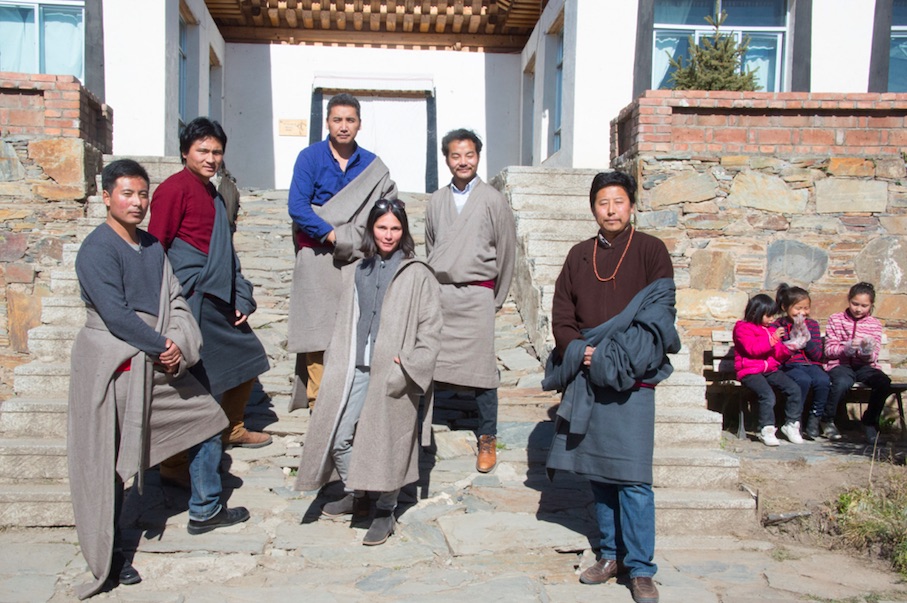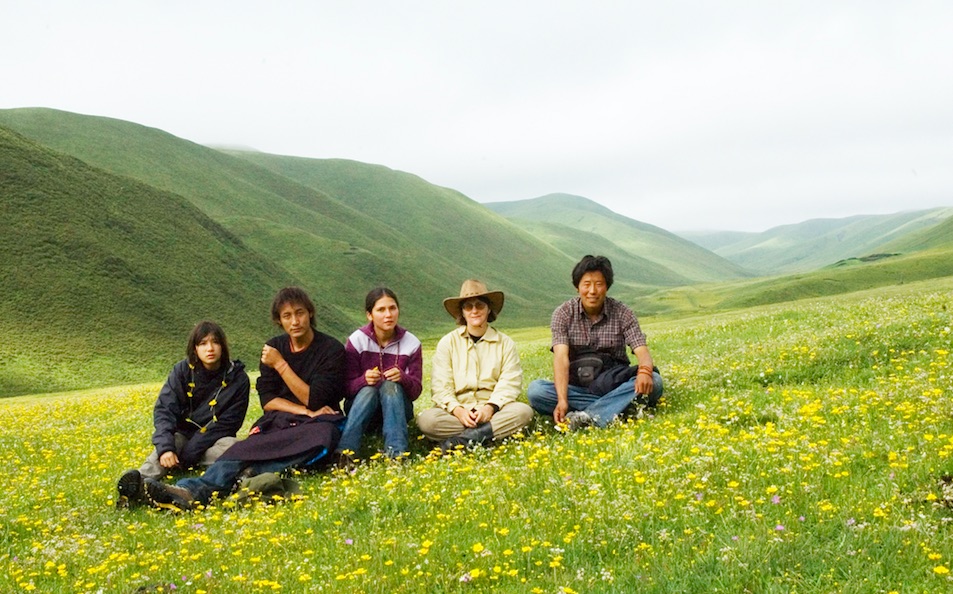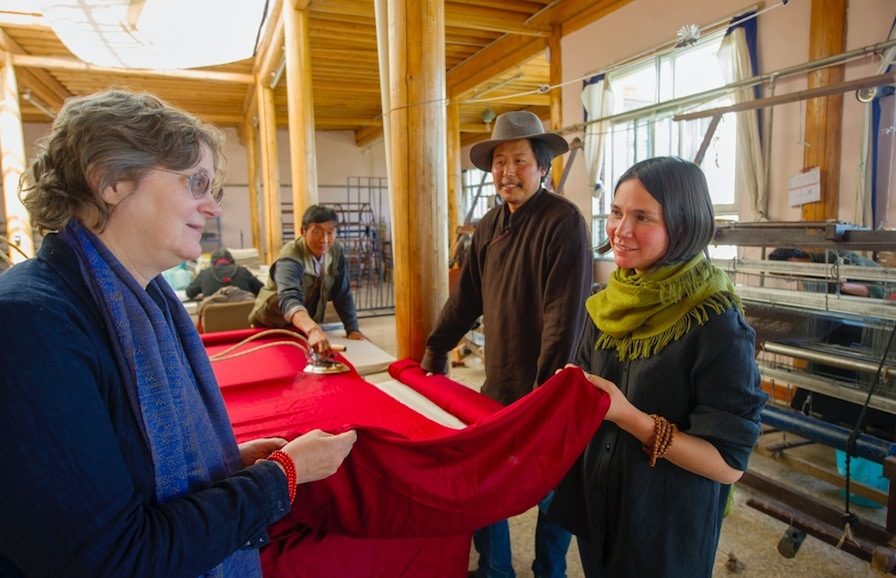
By Carla De Landri
Made from memories and miracles is how Kim Yeshi, the founder and president of Norlha Textiles, describes the genesis of creating a social enterprise on the rugged and remote Tibetan Plateau. Kim traces her passion for textiles to the beautiful soft durable British cloth coats of her childhood. In a world of disposables, Kim had a vision to make the finest fabric on Earth that could last a lifetime and be passed on for generations.
The business has grown from 30 to 120 employees, and that’s just one of the miracles. Mother and daughter Dechen gave birth to a workshop and a growing village where thanks to a reliable income provided by their work at Norlha, the Tibetans can invest in new homes, education, health, and their future.
Today Norlha’s sumptuous, high quality product line has expanded from scarves and clothing, and home goods and accessories many shipped from a thriving e-commerce platform to world capitals from Beijing to Paris and New York. In Tibetan, Norlha means the “Wealth of the Gods.” The Tibetan nomads call their yak “Nor” meaning the source of their wealth. And thanks to the miracle of Norlha and yak wool, the nomads of Zorge Ritoma, Tibet can now meet their needs whatever the season.
Please tell me how you started the business in Tibet?
I’ve been living in India since 1979 and worked a lot with fibers and textiles. I tried to bring back all these wild silks and these raw cottons. I heard Tibetans talking about yak. I literally lured Dechen after she finished college; I bought her a nice camera and said, “Why don’t you go explore?”
Dechen went on vacation to the Amdul province where we know people. A year later, she went back with her brother. They had a mission to buy fiber, process it, and send it to me. It took them seven months. Nobody took her seriously. I’m amazed at how tough she was, and with her little brother following her. The people just saw these two kids saying they were going to do something with yak fiber.
Dechen learned so much, because when you buy it from the source, and you process it, you see what works and what don’t. They packed it on a truck, sent it to Hassan, and then over the border at Katmandu. My friend who has a workshop took over and processed it, and then finally, we saw that it was an amazing fiber.

Kim and Dechen and a few of the artisans behind the Norlha brand.
What do you feel are your accomplishments on the social impact side?
We are a tiny drop in the ocean but at least we’re an example of what can be done. There are huge problems because people are moving from one environment to another. It is not just the Tibetan plateau but it exists in any country where people are left behind by development. In our case, we went to a place where there’s nothing, there are just people herding animals. The people’s children don’t want to herd animals anymore. We’re seeing an end of the whole nomadic way of life. What do these people do if they don’t herd animals anymore? There has to be something new to fill that in so they don’t have to migrate to cities. We help develop infrastructure in a place where things otherwise would not get developed.

Kim and Dechen in the workshop.
How do you create a business that also makes social impact?
It’s all based on jobs. Ours is linked to the luxury market. The people we work with work by hand. You try to scout the exceptional thing that somebody already does in the area. We have innovated and mechanized a little but without the product losing its soul. The root is that you have people who want to use their skills and feel good about doing it. That means you have to give them good wages. For good wages, you have to have a good market. You have to balance a product that people will buy at a higher price that will keep the artisans going in a sustainable way.

